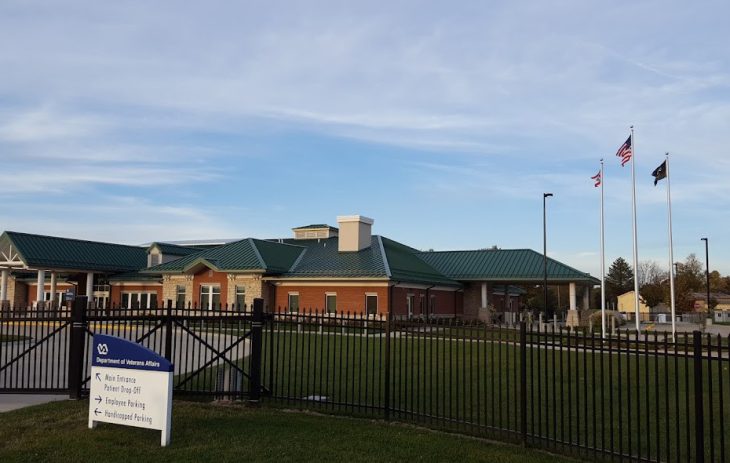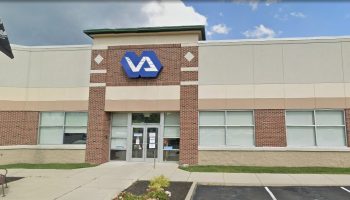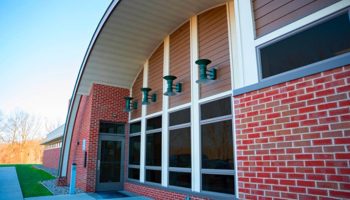About Mansfield VA Outpatient Clinic
The David F. Winder Department of Veterans Affairs Community-Based Outpatient Clinic is a healthcare facility that offers a range of care, including treatment services for mental and behavioral issues like substance misuse. You’ll find ’em based out in Mansfield, Ohio. Support is available to adult veterans and their families. They also assist homeless veterans. Medicare, Medicaid, TRICARE, and other private insurances are accepted.
The team here is adept at matching their services to meet individuals’ specific needs, which may include counseling, group therapy, or medication-assisted treatment (MAT). These all feature in both their inpatient and outpatient services. Their residential facility can support veterans in dealing with substance use disorder, as well as gambling addiction, homelessness, unemployment, and mental health issues. It does so with an intensive treatment program comprised of 24-hour therapeutic and educational sessions. Some of these include peer support, the aforementioned group and individual counseling sessions, health maintenance, and community support initiatives.
MAT here uses FDA-approved medicines like methadone, buprenorphine, Suboxone, and naltrexone. MAT is particularly effective when applied alongside the regular therapy sessions, to help clients manage trickier withdrawal symptoms and cravings.
A few therapy options are also offered here for clients to choose from as part of both inpatient and outpatient services. These include cognitive behavioral therapy (CBT), motivational interviewing (MI), and contingency management (CM). CBT is designed to help clients change their self-perception, and break unhealthy thought patterns and behaviors using a problem-solving approach and goal setting. MI focuses on clients’ motivations to recover, strengthen, and reinforce them. Lastly, CM is focused on incentives for completing treatment. These incentives get bigger relative to the consistency of clients’ healthy behaviors as a response to treatment.
Levels of Care
-
Outpatient
In outpatient therapy, you’ll attend therapy sessions several times each week while living at home. This is ideal if you have a strong support system and a lower risk of relapse. Outpatient treatment offers flexibility to maintain work, school or family obligations.
-
Aftercare
Aftercare programs provide ongoing support after you complete a rehab program. They may include several components to help you maintain sobriety including therapy, community support groups and relapse prevention strategies. This gives you a network of resources as you reintegrate into your daily life.
-
Dual Diagnosis
Dual diagnosis programs address substance use disorders and co-occurring mental health conditions simultaneously. This integrated approach to care improves the likelihood of long term recovery and stability by addressing the root causes of addiction.
-
Sober Living
Sober living homes provide a supportive and substance free environment for you to live in as you overcome your addiction. Residents must follow house rules and support each other's recovery journeys. Sober living fosters accountability and stability during this critical phase of recovery.
Detox Service Setting
-
Outpatient Detox
Outpatient detox gives you access to medically supervised withdrawal services while still allowing you to live at home. You’ll attend a clinic for treatment and monitoring. This flexible option is suitable for those with mild to moderate withdrawal symptoms who have strong support systems.
Programs
-
Adult (18+)
Adult programs address the substance use and life challenges specific to adults. Therapists can deliver sessions in individual, group and family settings. Services often include job support and life skills training in a structured environment.
-
Alcohol Detox
Alcohol detox programs offer medical support to help individuals withdraw safely from alcohol. Your care team may use medications to ease your symptoms and provide medical monitoring to address complications.
-
Cognitive Behavioral Therapy
Cognitive behavioral therapy focuses on changing harmful thought patterns and behaviors associated with addiction. You’ll learn healthier coping mechanisms by identifying and replacing negative thoughts. This improves your emotional resilience and decreases your relapse potential.
-
EMDR Therapy
EMDR stands for eye movement desensitization and reprocessing therapy. It helps you process traumatic memories that may underlie addiction. You’ll learn how to reduce emotional distress and begin healing from past events. This makes it effective for trauma related addiction causes.
-
Men
Men's programs address substance use while also considering the social pressures, family roles and mental health concerns that are specific to men. You’ll learn healthy coping mechanisms as you build emotional resilience and develop communication skills.
-
Military / Veterans
Military and veteran programs offer specialized support for clients who served in the armed services. Programs focus on reintegration and healing within a structured and supportive environment that acknowledges the unique struggles of military life.
-
Opioid Detox
Opioid detox uses medications to ease severe withdrawal symptoms. It also includes medical supervision to help you manage potential complications. These services allow you to stabilize and begin a recovery plan.
-
Seniors (65+)
Senior programs address the unique needs of older adults like chronic pain, grief and isolation. Programs include peer support and medical oversight for age related health concerns. The goal is to improve quality of life and promote sober aging.
-
Women
Women's programs offer a safe and supportive space to focus on gender specific issues such as trauma, family roles and mental health conditions. Therapists tailor the sessions to address women's needs and foster empowerment in a healing and nurturing environment.
-
Young Adult (18 - 25)
Young adult programs are designed for individuals who are transitioning into adulthood. Topics of discussion typically include identity, independence and peer relationships. Providers may also offer life skills training and career support.
Payment Options
- Free
- Medicaid
- Medicare
- Military Insurance
- Private Insurance
- Self Pay
Accreditations
-
 Joint Commission
Joint Commission
Contact
1025 South Trimble Road
Mansfield, OH 44906





